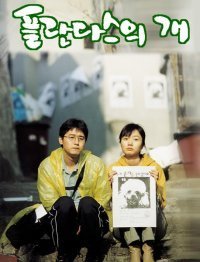There’s a scene in Parasite where fumigators come to the alley where the Kims live, spraying white clouds of insecticide. “Do they still do t hat?” someone asks. It was, among other things, a callback to Bong’s first movie, Barking Dogs Never Bite. In that film, kids ride their bikes in the poison wake of a fumigation truck, and a character disappears in the toxic fog. Those trucks were a real thing, at least in those days.
The unjustly neglected Barking Dogs was the first Korean film I ever saw. It was part of a Korean film festival in New York City in 2001, which I attended so I could learn something, anything, about the country I’d be moving to a couple of months later. No one knew much about Korea then. There wasn’t yet a Korean wave. No one talked about Korean fashion or makeup or hip-hop or dramas. All of that was in the future. But I was pretty sure I’d just seen a great film, and when I moved to Korea, it came back to me again and again. Somehow it captured perfectly the texture of Korean life in those days.
As the Korean wave crested, other films and directors got more notice, especially the brilliant Park Chan-wook. But for all the flash and dazzling weirdness of Oldboy and the rest of his Vengeance series, I was convinced that people were missing out on Korea’s greatest filmmaker. I went to see Bong speak at the Korea Society in New York a few years ago, and he drew a crowd of dozens. He was affable, charming, humble, and quietly very, very smart. Like his movies.
I’m glad that he’s getting the attention he deserves at last, and not for one of his crossover films — his English-speaking characters have always felt wooden to me — but for a movie rooted in the textures of actual Korean life (and starring longtime Bong collaborator Song Kang-ho). It’s a proud moment for Korean cinema and culture, and one that I hope will draw viewers to Bong’s other films, and to the work of other Korean filmmakers and artists.




